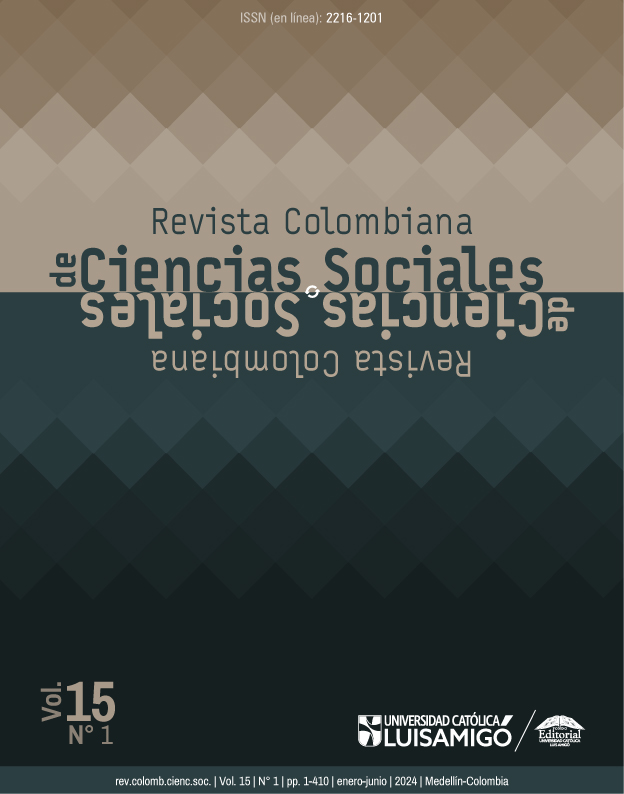Percepciones de los niños y niñas sobre la experiencia de juego y el aprendizaje con Nintendo Labo: múltiples experiencias de “hacer y jugar”
DOI:
https://doi.org/10.21501/22161201.4243Palavras-chave:
Nintendo, Informal Learning, Kids, Science, Knowledge, Maker, Play, Learn, VideogamesResumo
Este artículo explora las percepciones de niños y niñas que tuvieron la oportunidad de explorar las fases de “Hacer” y “Jugar” del Kit de variedad “Toy-Con 01” del Nintendo Labo. A través de aspectos claves como el involucramiento/compromiso estudiantil, la utilización del conocimiento y la adquisición de nuevos conceptos (Gee, 2008), este artículo amplía la comprensión general de cómo los videojuegos pueden generar un aprendizaje activo. A partir de las experiencias en la construcción de proyectos de “Hazlo tú mismo”, los autores analizan cómo los niños, a través de cuatro casos diferentes, conectaron sus conocimientos y experiencias previas con contenido relacionado con la ciencia (implícito en las interacciones y el hardware de la consola Nintendo Switch y el software Nintendo Labo y piezas de cartón). Las limitaciones del estudio sugieren que se necesita más tiempo para tener una exploración más profunda de las percepciones de los niños explorando la fase “Descubrir”—la tercera y última fase de Nintendo Labo.
Downloads
Referências
Arya, D., Muller, A., Cano, J., Hyun, F., Rice, M., & Christman, D. (2022). Undergraduate service learning as a context for exploring the ‘Institutional Void’ of higher education. In E. A Nemeth & A. N. Patterson (Eds), Pursuit of Liberation: Critical Service-Learning as Capacity Building for Historicized, Humanizing, and Embodied Action (pp. 147-187). Alan S. Tinkler, Missouri State University. Todd A. Price, National Louis University.
Berry, J. W. (1989). Imposed etics—emics—derived etics: The operationalization of a compelling idea. International journal of Psychology, 24(6), 721-735. https://doi.org/10.1080/00207598908247841
Brenner, M. E. (2006). Interviewing in educational research. In J. Green, G. Camilli, & P. Elmore (Eds.), Handbook of complementary methods in education research (pp. 357-370). Erlbaum.
Cano, J., & Arya, D. (2023). The Reciprocal Power of Equitable, Intergenerational Learning: Exploring Perspectives of Undergraduate Students about Engaging in a University–Community Partnership Program. Social Sciences, 12(6), 349. https://doi.org/10.3390/socsci12060349
Coombs, P. H., & Ahmed, M. (1974). Attacking rural poverty: How non-formal education can help. Johns Hopkins University Press.
Gee, J. P. (2004a). An introduction to discourse analysis: Theory and method. Routledge.
Gee, J. P. (2004b). Situated language and learning: A critique of traditional schooling. Routledge.
Gee, J. (2005). Learning by Design: Good Video Games as Learning Machines. E-Learning, 2(1), 5-16. https://doi.org/10.2304/elea.2005.2.1.5
Gee, J. (2008). Good Video Games, the Human Mind, and Good Learning. In Children’s Learning in a Digital World (pp. 40-63). Blackwell Publishing Ltd.
Hatch, M. (2013). The maker movement manifesto: Rules for innovation in the new world of crafters, hackers, and tinkerers. McGraw-Hill Education.
Matijević, M., & Topolovčan, T. (2019). Informal Learning among Teenagers through Video Games. Journal of Elementary Education, 12(1), 1-25. https://journals.um.si/index.php/education/article/view/180
McBeath, J., Balos, N., & Arya, D. J. (2017). Engaging latin@ middle school students in literacybased MakerSpace activities to enhance STEM practices and engagement. Proceedings for the 2017 Hawaii International Conference on Education, Honolulu, January 3-6 2017.
Nintendo (2018a). Nintendo Labo Toy-Con 01: Variety Kit. Nintendo Website. https://www.nintendo.com/ph/switch/adfu/index.html
Nintendo (2018b). Nintendo Labo Teacher Guide [PDF file]. https://clalliance.org/wp-content/uploads/2021/06/Nintendo-Labo-Teacher-Guide.pdf
Pike, K. L. (1967). Language in relation to a unified theory of the structure of human behavior. The Hague. Mouton.
Ricardo, C., Cano, J., Astorga, C., Borjas, M., & Navarro, V. (2021). Ambientes de aprendizaje enriquecidos con TIC en educación infantil: una mirada internacional. Universidad del Norte.
Scolari, C., & Contreras-Espinosa, R. (2019). How do teens learn to play video games? Informal learning strategies and video game literacy. Journal of Information Literacy, 13(1), 45–61.
Skukauskaitė, A. (2017). The systematic analyses of layered meanings inscribed in interview conversations: An interactional ethnographic perspective and its conceptual foundations. Acta Paedagogica Vilnensia, 39(39), 45-60. https://www.journals.vu.lt/acta-paedagogicavilnensia/article/view/11771
Skukauskaite, A. (2012). Transparency in transcribing: Making visible theoretical bases impacting knowledge construction from open-ended interview records. Forum Qualitative Social Research, 13(1). https://doi.org/10.17169/fqs-13.1.1532
Spradley, J. P. (1979). The ethnographic interview. Wadsworth Cengage Learning.
Squire, K. (2011). Video games and learning. Teaching and participatory culture in the digital age.
Toivonen T., Jormanainen I., Montero C. S., & Alessandrini A. (2018). Innovative Maker Movement Platform for K-12 Education as a Smart Learning Environment. In M. Chang (Eds.), Challenges and Solutions in Smart Learning. Lecture Notes in Educational Technology (pp. 61-66). Springe.
Publicado
Como Citar
Edição
Seção
Licença
Copyright (c) 2023 Revista Colombiana de Ciencias Sociales

Este trabalho está licenciado sob uma licença Creative Commons Attribution-NonCommercial-NoDerivatives 4.0 International License.
La revista y los textos individuales que en esta se divulgan están protegidos por las leyes de copyright y por los términos y condiciones de la Licencia Creative Commons Atribución-No Comercial-Sin Derivar 4.0 Internacional.









